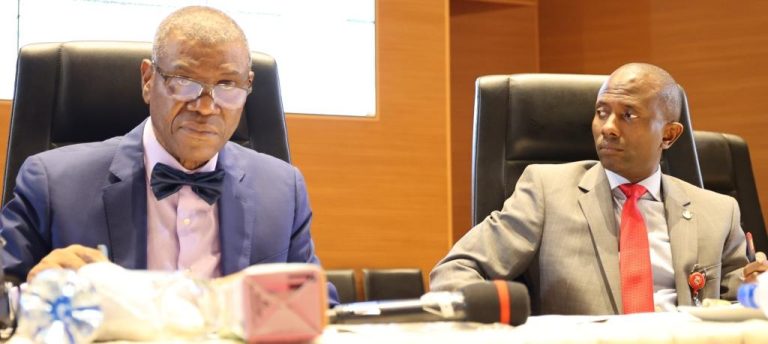In a united effort to strengthen the fight against corruption and address the issue of unexplained wealth in Nigeria, the Economic and Financial Crimes Commission (EFCC), the National Judicial Institute (NJI), and key anti-graft stakeholders have issued a resounding call for robust, internationally-accepted legislation. This call to action emerged from the 5th EFCC-NJI Capacity Building Workshop for Justices and Judges, held at the NJI in Jabi, Abuja.
The workshop concluded with a Communique that stressed the “urgent need to enact legislation to address the issue of possession of unexplained wealth or assets.” It highlighted the disparity between Nigeria and other countries like the United States, the United Kingdom, Hong Kong, and Kenya, which already have laws in place to tackle the challenge of unexplained wealth.
Mr. Wahab Shittu, SAN, who spoke at the 7th session of the workshop, drew attention to the conspicuous absence of such legislation in Nigeria. He remarked, “In Nigeria, the issue of unexplained wealth has long been a cause of worry. Luxurious lives and lavish possessions that seem at odds with declared salaries have prompted inquiries regarding the sources of such wealth.” To address this critical issue, the workshop called upon the National Assembly to draft and pass relevant legislation.
The Communique also highlighted the importance of enhancing the training of judicial officers and staff of anti-corruption agencies. This training is seen as essential to equip them with the skills necessary to navigate the complexities of asset tracing and seizures, plea bargaining, cryptocurrency, data protection, artificial intelligence, and other emerging forms of economic and financial crimes.
Other key points raised in the Communique included:
The need for full implementation of the Proceeds of Crime (Recovery and Management) Act, 2022, to prevent individuals from benefiting from the proceeds of their crimes.
The development of a comprehensive Whistleblower and Witness Protection Act to facilitate investigations and prosecutions in corruption cases.
Participants in the three-day workshop included esteemed jurists, including Supreme Court Justices, Court of Appeal Judges, Federal and State High Court Judges, and senior members of the legal community, including Senior Advocates of Nigeria. The Acting Executive Chairman of the EFCC, Mr. Abdulkarim Chukkol, and the Secretary to the Commission, Dr. George Ekpungu, were also in attendance.
The workshop, themed “Consolidating on the Gains in the Fight Against Economic and Financial Crimes in Nigeria,” was inaugurated by President Bola Ahmed Tinubu and attended by the Chief Justice of Nigeria, Justice Olukayode Ariwoola, alongside other distinguished guests.






